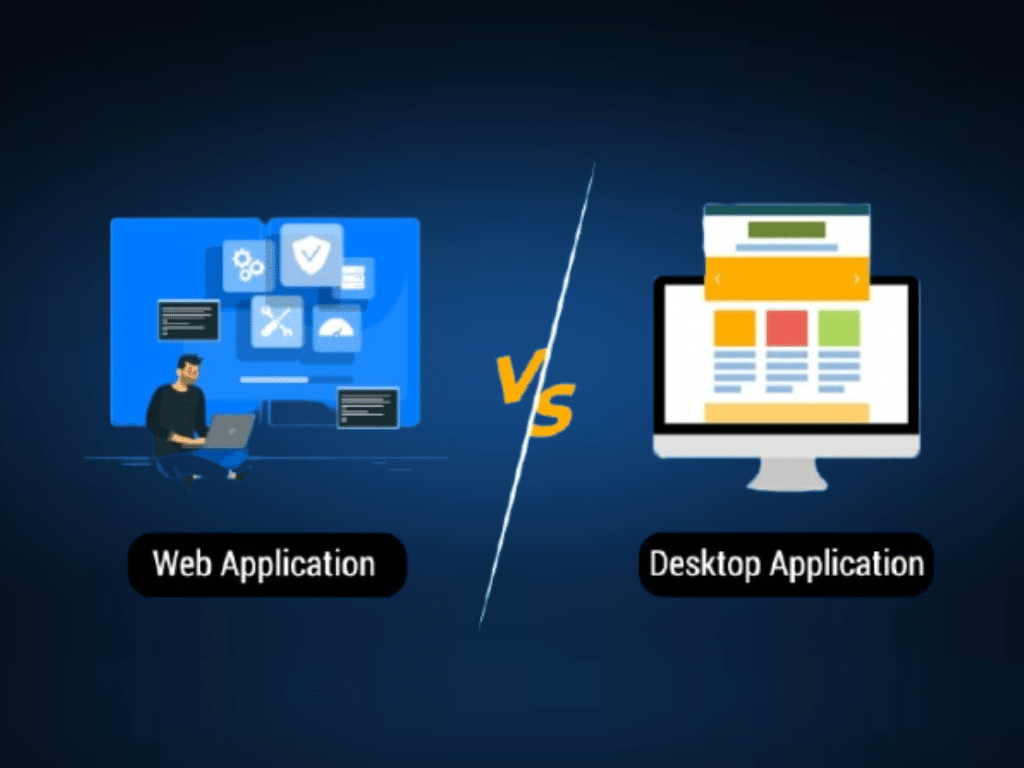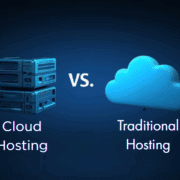Desktop App Development vs Web App Development – What to Choose?
From aviation and ecommerce to healthcare and more, desktop and web applications have become the driving force of almost every industry. They are helping businesses serve their audiences with the best—just in a few clicks.
A report by Fortune Business Insights reveals that the global application development software market is projected to hit the valuation of $621.31 billion by 2032, exhibiting a CAGR of 23.9%. This massive growth highlights how important it is for businesses to embrace app development to remain competitive and agile.
However, one question still stands at the front: which one out of desktop app development and web application development is the best?
And most importantly, which one should you choose for your business?
In this ultimate guide, we will be comparing desktop application development and web app development to find answers to these questions. By the end, you’ll be able to make an informed, future-ready decision for your next digital product.
What is Desktop App Development?
Desktop application development refers to the process of creating a software application that works natively on a computer’s operating system, such as macOS, Windows, and Linux. These applications are directly downloaded and installed on a device and can function with or without an internet connection.
Most desktop application development services utilize technologies like C++, Java, and Python to build robust desktop applications that offer a seamless user experience. Some common examples of desktop applications include Microsoft Office applications, Adobe Creative Suite, iTunes, and more.
Advantages of Desktop App Development
Desktop application development offers numerous advantages to businesses and developers, making it a popular choice among industries.
High Performance and Speed
Desktop application development can leverage access to native system resources, enabling faster processing, essential for resource-heavy tasks like video editing or data modeling. High performance and faster speed deliver a better user experience.
Offline functionality
Unlike web-based apps, desktop application development offers full usability without the internet, ensuring seamless operation in all environments. When creating a desktop app with Python, developers can integrate multiple offline features.
Strong Security
The usage of local storage and limited online interactions allows desktop application development to offer better security, making the developed applications less susceptible to online vulnerabilities and data leaks.
Disadvantages of Desktop App Development
Before considering desktop application development over web app development, it is important to take a look at some of its disadvantages;
Cost and Resource Intensive
The most significant disadvantage of desktop application development is that it requires a high investment in terms of cost and resources. This approach proves more costly for businesses that want to develop applications for multiple platforms.
Platform Dependency
Desktop applications completely depend on the native functionalities of an operating system. Without cross platform desktop app development, you will need separate builds for different operating systems, increasing the application’s time-to-market
Difficult Updates
Releasing updates for desktop applications is more complex as compared to web applications, as the updates should be designed according to native functions. Also, Users have to manually install updates, which can lead to version mismatches.
What is Web App Development?
Web app development refers to the process of creating a software application that runs on a remote server and is accessed via a web browser over the internet. Applications developed using this approach do not require any downloads or installations on the user’s end and are platform-independent.
For creating a web application, programming languages like HTML, CSS, and JavaScript are used along with frameworks like React or Angular. Some common examples of web applications include Google Docs, Gmail, Facebook, and more. These applications require minimal client-side resources and utilize less storage.
Advantages of Web App Development
Web application development has been a common approach among businesses for a long time due to the several advantages it offers;
Cross-Platform Compatibility
With web application development, you don’t need to create separate builds for different platforms and operating systems, as web applications can work seamlessly on any platform. They depend on the browser rather than the system to work.
High Scalability and Flexibility
Web application development offers higher scalability and flexibility for app making websites as compared to desktop applications. Businesses can easily scale their applications up or down based on varying usage and demand.
Easier Updates and Maintenance
Businesses and developers can quickly release updates and changes to their web applications without needing users to manually download new versions. Also, the cost of maintaining web applications is significantly lower.
Disadvantages of Web App Development
Similar to desktop application development, web application development also comes with some disadvantages that must be considered;
Internet Dependency
Unlike offline-ready desktop apps, web app development relies on stable internet connectivity for functionality. This makes it challenging for developers to ensure optimal performance of the application under poor or no internet connection.
Lower Performance
Browser constraints and limited system access restrict businesses from developing applications with high performance. A native desktop app with Python or other languages can easily outperform web applications.
Security Vulnerabilities
Digital products created using the web application development approach are more vulnerable to cyber threats if robust security measures are not implemented. Their online nature makes them more exposed to attackers and hackers.
Comparing Desktop App Development vs. Web App Development
Comparing desktop and web application development is not just about understanding their advantages and disadvantages; rather, it is about finding out which one of the two stands out based on different factors. A strategic approach to choosing the right methodology will help you make an informed decision.
Here are some important factors that you must consider while choosing between web and desktop application development:
Performance
Applications created using desktop app development generally offer faster performance and are more responsive as compared to web applications. This is because desktop applications run natively on a device or an operating system.
Time-to-Market
When it comes to getting an application quickly to the market, web application development stands out as a better solution. Since you don’t have to develop separate applications for different platforms, you save a lot of development time.
Offline Functionality
Desktop application development allows businesses to offer robust offline functionalities. On the other hand, web application development offers limited offline features due to the dependency of applications on an internet connection.
Cost
Creating a web application proves more cost and resource-efficient as compared to desktop application development. Web applications can be built using common technologies and frameworks, which usually cost less than the advanced ones.
Development Efforts
The efforts that go into developing desktop and web applications remain the same, as both approaches are complex and require a strategic approach. It is the reason why most businesses choose to partner with website and app development services.
Which One Should You Choose?
Desktop and web app development come along with their unique strengths and weaknesses, and stand out from each other in different aspects. However, choosing one for your business completely depends on your requirements, goals, and the experience you aim to offer to the users, i.e., your customers.
Desktop applications perform better, work offline, and keep data more secure. Yet, web applications are most cost-effective and avoid version update issues. In case you find it difficult to make the right choice, partnering with desktop application development services will lead your business on the right path to endless growth.




